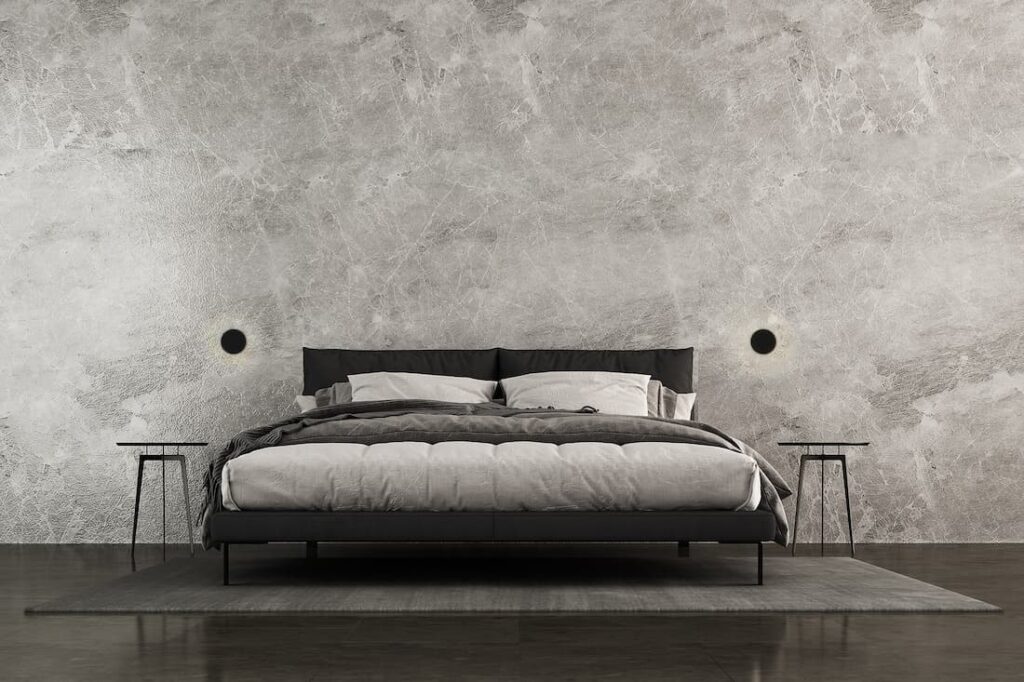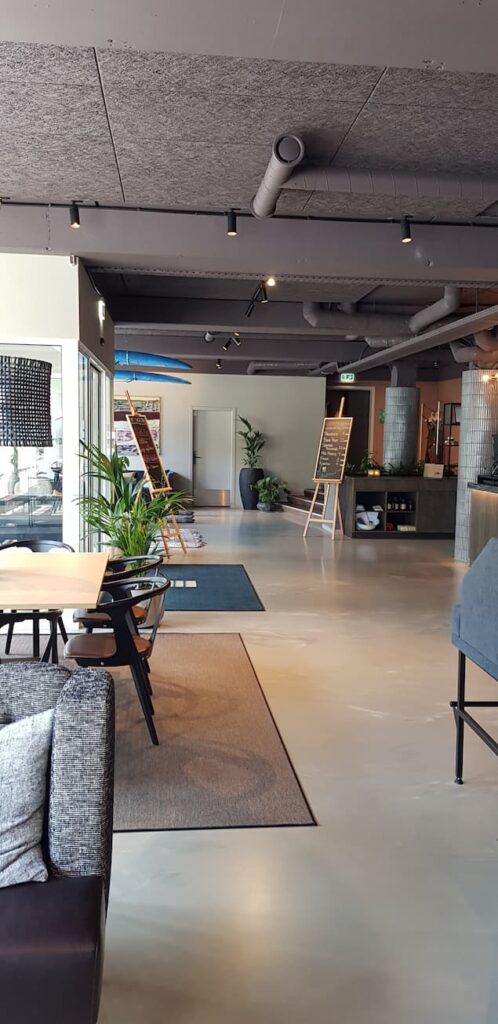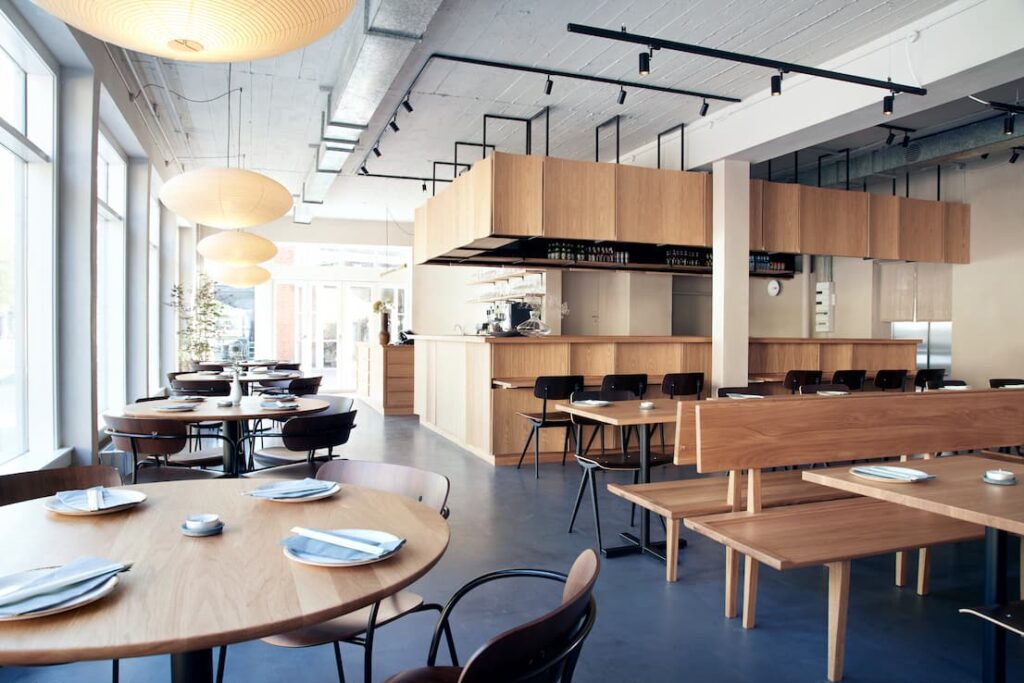5 tips for good hotel lighting
- Af Mette Bergholdt
- Last updated30. April 2024
Going to a hotel often means indulgence, relaxation, and well-being. It is important for guests to have a positive first impression and to feel comfortable throughout their stay.
Lighting plays a significant role in how guests perceive the hotel and whether the right ambiance is created.
While hotels may vary, there are common tips and advice on how to create the perfect hotel lighting. If this interests you, read on. In this blog post, we have gathered our best tips to help you create the right atmosphere in your hotel.

A bit about the author:
Mette Bergholdt
Share post:
Related posts:
The ultimate guide to task lighting in different environments
How to achieve optimal hotel lighting
Designing with lighting in a hotel is not a simple task. Hotel lighting needs to fulfill various purposes as hotels contains several different areas. These include hotel rooms, foyers, lobbies, receptions, restaurants, bars, hallways – and some even have wellness areas, fitness rooms, and more.
It is important to consider the functions of these different areas and focus on creating the right ambiance while finding the appropriate solution for each setting.
1. The Lobby and Reception – the first impression
The first thing your guests encounter when they enter the hotel is the lobby, foyer, and reception, which are often combined in one space. It is an important area that greatly influences the initial impression of the hotel.
In the hotel lobby, there should be a calm and cozy atmosphere, while still providing enough light for guests who wish to read or work.
It requires care and attention when choosing lighting for the lobby, as it has a decisive impact on its appearance. It is a good idea to incorporate dimming capabilities and staging into your considerations, as it allows for changing the lobby’s ambiance according to the season or time of day.
The calm and comfortable atmosphere is best created by using a lot of indirect light, which illuminates a large part of the room through reflections and avoids glare.
The indirect light can be used as the primary lighting in the space.
To create attention, a combination of more direct light can be used to highlight decorative elements such as interior design, artwork, photographs, etc. In the reception area, more light is often needed than in the rest of the lobby to create a welcoming and bright atmosphere that naturally guides guests to the area and provides good working light for the staff.

2. The lighting in a hotel room
The hotel room is the entire foundation of the hotel’s existence. It is where guests relax, sleep, work, and get ready. The room serves many functions, and therefore the lighting should be tailored to the room’s design, allowing guests to feel at home and comfortable.
The primary light
In the hotel room, there should be several different lamps that can be turned on and off independently of each other. First and foremost, there should be good primary lighting to easily navigate and find things in the room. The lamps used for primary lighting should provide a pleasant, diffuse light, and it can be advantageous for the guest if it is also dimmable, allowing it to be adjusted as needed.
Bedside lamps
Next to the bed, it is important to have good bedside lamps that can be used when the primary light is turned off and provide optimal light for reading. It can be a wall lamp or a table lamp. It would be an advantage to choose lamps that can provide both direct and indirect light, so that the guest can decide which lighting is desired.
Bathroom lighting
In the bathroom, it is also important to consider the lighting, so that it is both cozy, stylish, and functional. There are specific regulations for bathroom lighting that must be followed, and therefore, we recommend seeking professional assistance if you are planning to install bathroom lighting in hotels.
3. Cozy atmosphere in the hotel restaurant and bar
Most hotels have a restaurant or bar where guests can enjoy a delicious meal or have a refreshing drink. Just like in the rest of the hotel, the lighting is crucial for creating the right ambiance, which in this case should be relaxing and cozy.
Again, it is important to consider that the space can serve multiple functions. Firstly, there should be good task lighting for the staff when the restaurant is closed, ensuring that every small detail is visible.
When the restaurant opens, the lighting should be dimmable to create a calm atmosphere. Often, a pendant light is placed over each table, and it is essential for the lighting not to glare at the guests.

4. Create ambiance with outdoor lighting
When it comes to hotel lighting, you cannot avoid also considering the outdoor lighting. The lighting outside provides an inviting and cozy atmosphere even before the guests have entered. It also helps attract the attention of potential guests who haven’t booked a room in advance.
To illuminate the facade of a hotel, outdoor wall lamps can be used, beautifully casting light on the building. When selecting outdoor lamps for hotels, we always recommend choosing high-quality ones to ensure they withstand the weather.
If there are beautiful trees, bushes, flowers, a statue, or other decorative elements at the entrance, they can also be illuminated with spotlights. This will create an admirable effect.
5. Achieve energy savings with LED lighting
When setting up lighting for a hotel, we recommend choosing light fixtures and bulbs with LED. LED lighting offers many benefits, including significant savings on your electricity bill and excellent light quality with our lamps that feature integrated LEDs.
If you operate an existing hotel with older lighting installations, it can often be cost-effective to switch to LED lighting. This investment quickly pays for itself.
Get assistance from our lighting consultants for your hotel lighting
We hope that the above guide could provide you with some advice on achieving optimal hotel lighting, creating a sense of well-being for both guests and staff.
However, ensuring the perfect hotel lighting can be complex, and that’s why seeking professional lighting consultation can be highly advantageous. It depends on the individual hotel and its current design. If you need assistance with hotel lighting, feel free to reach out to our experienced lighting experts who possess extensive expertise in the field and can help bring your projects to life.
